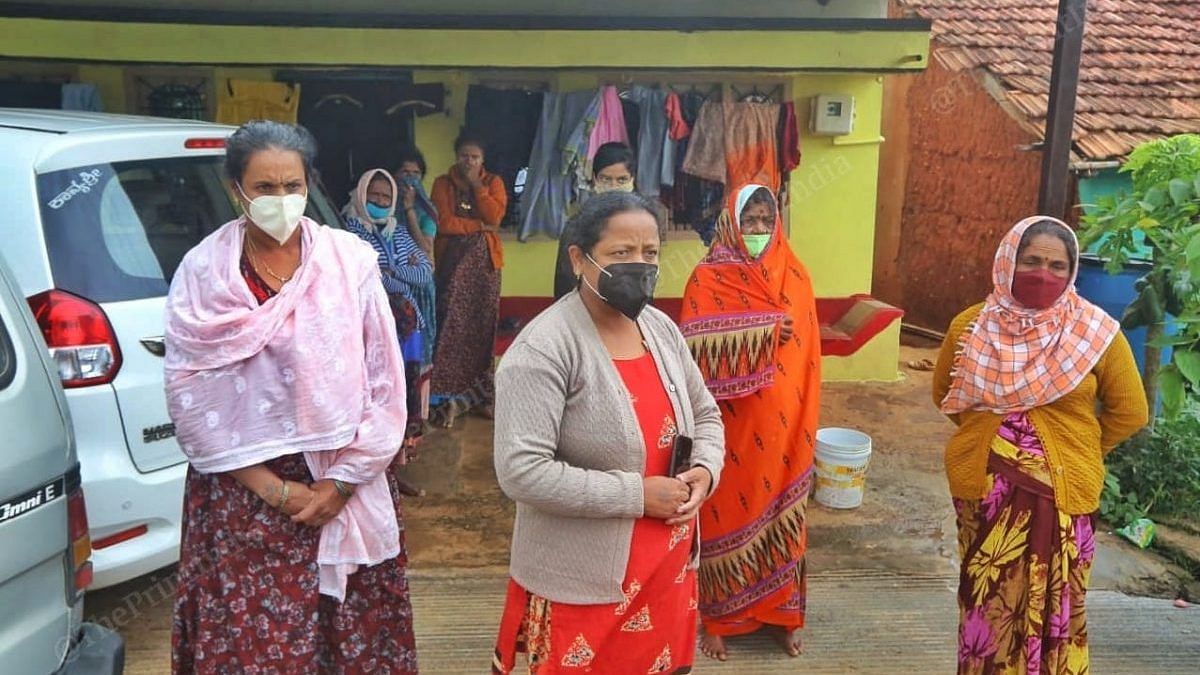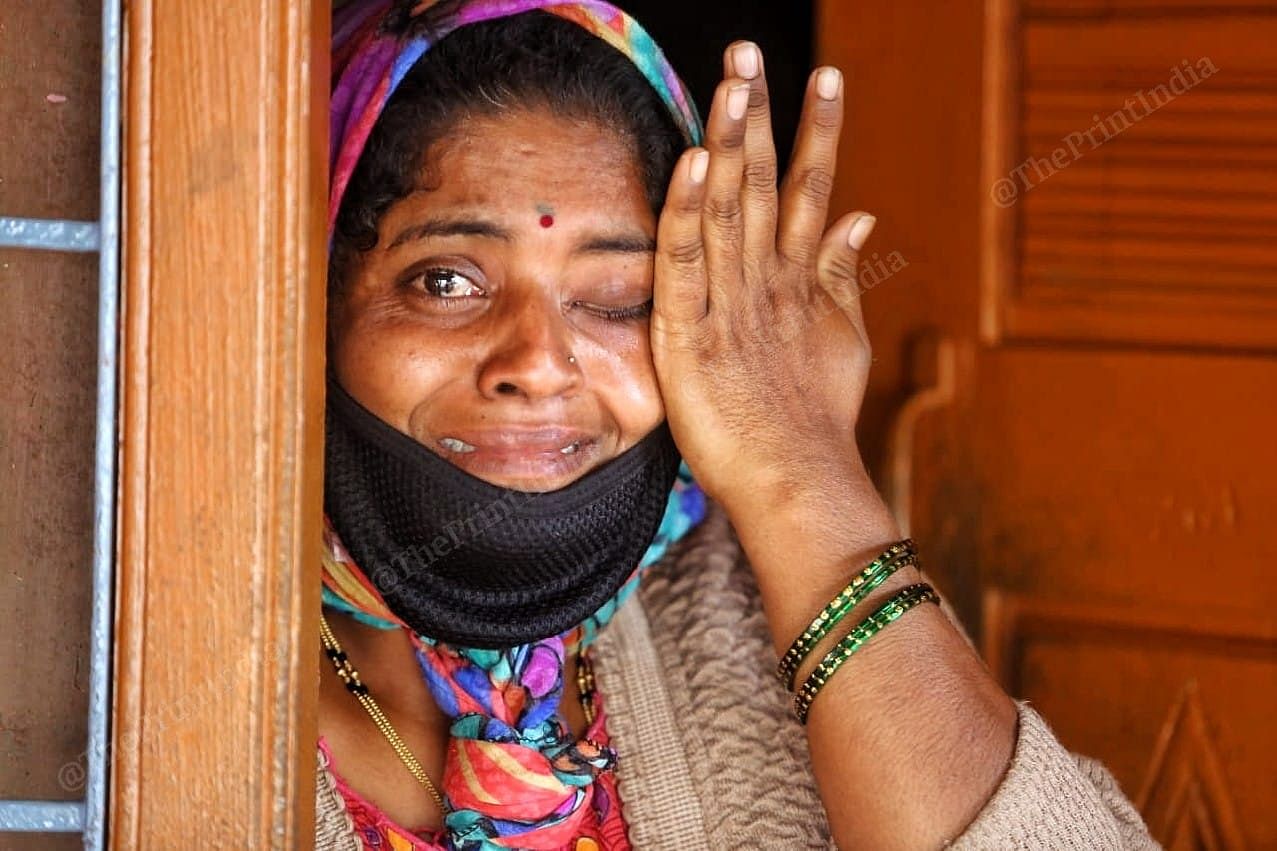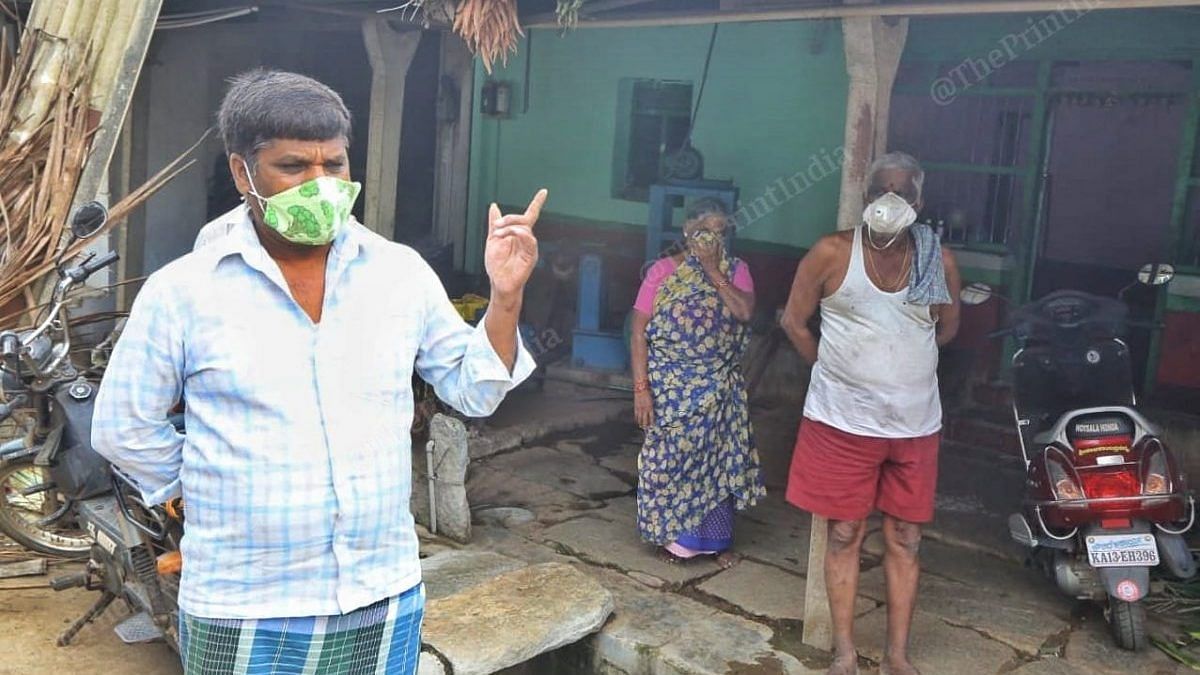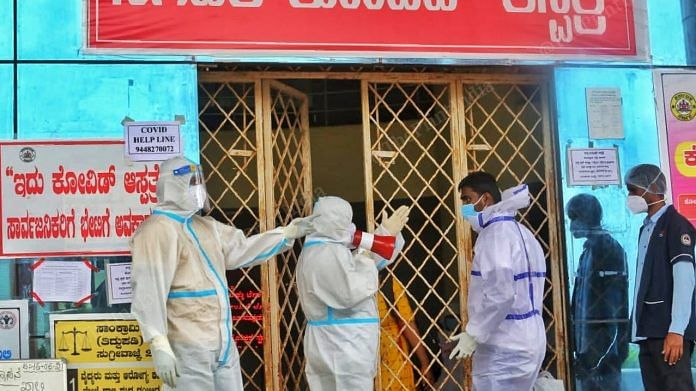Hassan: The tranquillity of farmlands in Karnataka’s Hassan district has now been shattered by daily deaths as Covid-19 pushes deeper into the country’s beleaguered hinterlands.
Much like most of the rural areas, a lack of medical facilities, delayed Covid-19 test results and absence of vaccinations has hit Hassan hard. As a result, the deaths have been rising here.
Rangaswamy, 38, a resident of Kudregundi village, was admitted at the Hassan Institute of Medical Sciences (HIMS) hospital, the largest dedicated Covid-19 facility in the district, on 11 May after reporting high fever. Barely 72 hours later, he died, leaving behind a wife and two children.
Rangaswamy’s RT PCR test report was handed over to his family only after his death.
Santosh, 32, a resident of Brahma Devanahalli village in Hassan district, died on 2 May after his family was unable to secure a bed at HIMS. Although they rushed him to a private hospital in the district, his oxygen saturation levels by then had dropped to 40.
Santosh was the sole earning member of the family. For his wife and two sons, the question that remains unanswered is why there were no beds when they needed it the most.
Somashekhar, 38, of the same village was diagnosed with Covid on 1 May. He spent 10 days at the HIMS hospital. He fell ill on 23 April with symptoms, but his family was unable to secure a bed in Bengaluru, where Somashekhar worked. He was finally admitted on 28 April.
With his death on 11 May, Somashekhar has left behind a young wife and a daughter. Similar to the countless stories here, Somashekhar too was the sole breadwinner of the family.

With rising cases and deaths, the district is becoming part of what experts have long feared and warned about — Covid-19 in its second wave is devastating the hinterland.
Hassan, less than 200 km from swish Bengaluru, is among the country’s 15 worst-affected districts, according to an SBI study on the severity of the pandemic in rural areas. It is the only district from Karnataka on the list.
According to official data provided by the Karnataka government, there are 25,921 people in active quarantine in the district, 15,337 active cases and 740 deaths as of Monday.
Over the last seven days, 7,982 cases have been reported in Hassan, with the district recording 2,324 cases on Monday alone.
ThePrint visited three villages in the district and found a common thread — reduced testing, delayed reports, a lack of awareness regarding Covid-19 and the younger populace getting affected.
Also read: A Bengaluru woman returned from Kumbh, tested positive for Covid & ‘infected 33 people’
Health infrastructure in tatters
Doctors in Hassan say its rural medical infrastructure is in tatters. That combined with delayed testing and practically little or no awareness about Covid-19 care has resulted in the caseload being far higher than it was in 2020.
“The disease has gone to the hinterland and it’s spreading,” said Dr Ram Nath, critical care specialist at HIMS.
Doctors also complain that patients only reach them at the critical stage.
“Numbers are increasing every single day. Of the total cases, at least 80 per cent are home isolation cases of whom 15-20 per cent will go into hyper inflammatory phase (when patients get critical),” said Dr Lakshmeesha T, nodal officer, HIMS. “The monitoring at homes is poor. Many of the patients are coming in late with oxygen saturation of 40-50.”
The hospital has 500 oxygen and 100 non-oxygen beds along with 70 ventilator beds but all its ventilators are occupied.
Another doctor who did not want to be named said a number of patients on ventilators were actually from Bengaluru.
“We need at least 30 more ventilators, the way cases are coming in; we have 550 active cases every day,” the doctor said.
Former Karnataka chief minister H.D. Kumaraswamy also admitted that Hassan is facing a a major problem. “It is true that Hassan has been seeing a severe spike in positive cases as well as deaths. On Monday itself we saw close to 30 deaths,” Kumaraswamy told ThePrint Tuesday.
“We have also lost several of our leaders to the virus. There is a major problem with distribution of medicines like remdesivir and shortage of oxygenated beds and ICUs,” he added. “We have some relief because of HIMS but that is not enough as testing has reduced drastically and so has vaccination. We can only ask the government. It is their duty to ensure the safety of all.”
Hassan is the fiefdom of the Gowdas — Kumaraswamy and his father, former prime minister Deve Gowda.
Lack of Covid-19 awareness
The doctors’ charge that patients reach them only at a critical stage is somewhat borne out in the three villages — Nittur, Kudregundi and Brahma Devanahalli — that ThePrint visited.
In most deaths in the villages, the patients’ SPO2 had reached critically low levels.
Manjamma, 60, of Kudrengudi was taken to a private clinic by her son Pratap after she complained of fever.
“The clinic gave her some injection but did not ask us to get her tested. She was complaining of a cough and we got her tested on the morning of 5 May,” Pratap said. “We took her to a government hospital on 6 May but her SPO2, we were told, was very low (40) and she died on the same day.”
It was also the case with 32-year-old Santosh, the resident of Brahma Devanahalli village who died on 2 May. His wife Sudha, however, alleged that they tried getting him a bed in HIMS but could not do so in time.
“He was diabetic and was complaining of pain in his legs. On 30 April, his SPO2 dropped to 40 and we took him to HIMS and literally begged the doctors for a bed but didn’t get it,” she said. “They said he needed ventilator support. We then took him to a private hospital but it was too late and he died. He was our support, what will we do now?”

‘Vaccination to blame’
Many villagers claim that numerous people in their 30s and 40s are dying due to lack of vaccination. For instance Santosh, his family says, was not vaccinated.
Tarunakashi, 32, who died on 28 April, was also not vaccinated. Her husband, Bhaskar, a resident of Nittur village said she worked as a computer operator in Bengaluru and fell sick on 24 April.
“We tried for a bed in Bengaluru but could not get it. On 22 April, she had a fever and her RT PCR report had come negative but we were then asked for a CT scan, which we did and they told us to admit her immediately,” he said.
“We did not get a bed in Bengaluru and then brought her to Hassan. There were no beds in the government hospital here. We admitted her to a private hospital and on 28 April, she died. She had not been vaccinated but I got my first dose.”
Bhaskar, 46, who works in the village as a carpenter, is worried for the future of his children. “We spent over Rs 2 lakh as government hospitals were not available,” he said. “I hope I will be able to get the second dose on time otherwise who will take care of my two kids?”

‘Delay in test reports’
Residents claim that a delay in getting test reports is also a major cause of concern, in turn resulting in delayed hospitalisation.
In Kuduragundi village, 47-year-old Putta Swamy got himself tested on 24 April after reporting some symptoms. He died on 7 May.
His family says he did not get his report on time. “For a week the report didn’t come, so we could not get him admitted to a hospital. We took him to a nearby private clinic,” his wife Rupa said. “But his condition didn’t improve. We finally took him to HIMS and got him admitted but his SPO2 levels had started fluctuating. He died on 7 May.”
She added that most of the people in the village are farmers and a number of them don’t have oximeters to monitor SPO2 regularly.
“We were also tested and five of us came positive. As we didn’t have symptoms, we were asked to isolate at home and given some medicines,” she added. “No one has followed up after that. We don’t have an oximeter to monitor.”
Shivappanayaka, gram panchayat member of Brahma Devanahalli village, told ThePrint, mostly antigen tests are conducted that too very few in number. His village has so far reported three Covid-19 deaths.
“Whenever there is a death some tests are done, usually on the members of the family not otherwise. While testing is not being done in the village, people on their own don’t want to travel all the way to the Hassan district which is far for them,” he said. The last rapid antigen test was conducted on 8 May, he added.
Shiv Shankara, gram panchayat president of Kudregundi, said the village has reported two deaths and on an average five samples are taken every week.
“Whenever there is any death, government doctors come here and then conduct tests. Cases are increasing and in many cases, people don’t even know they have Covid until it is too late,” he said.
(Edited by Arun Prashanth)
Also read: In 15 days, BJP & RSS workers turn Kolar hospital defunct for 20 yrs into 300-bed Covid facility



